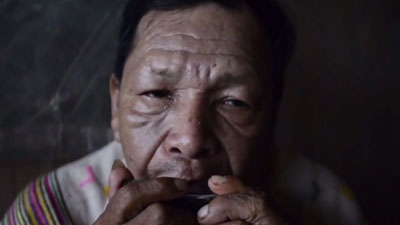When the UN Refugee Agency (UNHCR) – created to aid refugees during World War II – begins to address climate change, it seems clear that forced migration will be one of the main consequences of this phenomenon.
The UNHCR estimates that between 250 million and one billion people throughout the world will lose their homes or be forced to move from their region or even country over the next 50 years. In Latin America, an increasing number of people are facing the difficult choice of whether to stay or to emigrate.
It is a decision that Atahualpa Valdez and the other 40,000 residents of Cartí Sugtupu are already facing as sea levels rise and threaten both their and the other islands of the Kuna Yala Archipelago, located off the Panamanian coast,. Some people want to stay but others prefer the solid ground of the mainland.
“I used to have a house here but it collapsed,” says Valdez. “The waves took almost everything.”
Pablo Preciado, one of the elders on Cartí Sugtupu, says: “It is not easy just to cross over [to the mainland] because many people are not used to living there. It is a drastic change.”
Latin America at risk
The global climate is changing and the effects are already being seen throughout Latin America. Sea levels are rising, droughts are threatening food production in Central America and the Caribbean, and heavy rains are causing serious flooding in the south.
If the average global temperature continues to rise, Latin America will be one of the world’s most affected regions in a few years. Climate change could lead to mass migrations all over the world, driving people from their homes and communities, just as they were during the major wars of the last century.
In Peru, for example, major flooding in recent years has destroyed crops belonging to indigenous peoples living in the Amazon region and has also increased the spread of disease. Nonetheless, Paoyhan residents are not willing to leave their ancestral lands.
“It is a major concern for the community; previously, these types of disasters did not happen,” says Miguel Ochavano, a local shaman. “It worries me when my family has no food. What will happen to us?” he wondered.

